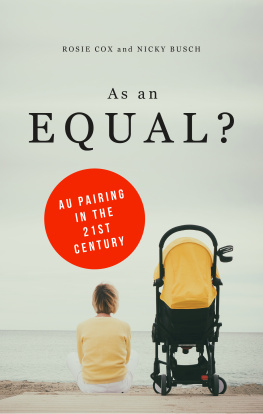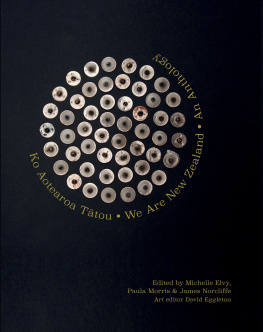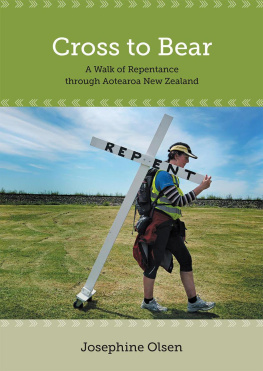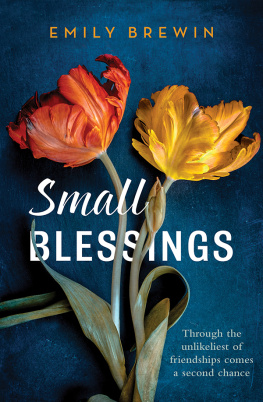Home Improvement in Aotearoa New Zealand and the UK
This book examines experiences of home improvement in the UK and Aotearoa New Zealand, providing valuable insight into the ways in which people make and maintain home in social, material and economic contexts. Drawing on in-depth interviews, examining both DIY projects and projects carried out by professional handymen, Rosie Cox explores how home improvement fits into wider social relationships and structures of inequality. Consideration is given to the importance of such work for gender and national identities, and how these identities are related to material contexts and the forms and fabric of homes. The book also highlights how home improvement can be a rewarding and valuable form of work, as well as an unrewarding and alienating endeavour. It will be of interest to scholars from a range of disciplines including anthropology, sociology and human geography.
Rosie Cox is Professor of Geography at Birkbeck, University of London, UK.
Home
Series editors: Rosie Cox and Victor Buchli
This interdisciplinary series responds to the growing interest in the home as an area of research and teaching. The titles feature contributions from across the social sciences, including anthropology, material culture studies, architecture and design, sociology, gender studies, migration studies, and environmental studies. Relevant to students as well as researchers, the series consolidates the home as a field of study.
Homely Atmospheres and Lighting Technologies in Denmark
Living with Light
Mikkel Bille
A Cultural History of Twin Beds
Hilary Hinds
Art and Masculinity in Post-War Britain
Reconstructing Home
Gregory Salter
Food Identities at Home and on the Move
Explorations at the Intersection of Food, Belonging and Dwelling
Edited by Ral Matta, Charles-douard de Suremain and Chantal Crenn
Ethnographies of Home and Mobility
Shifing Roofs
Alejandro Miranda Nieto, Aurora Massa and Sara Bonfanti
Globalising Housework
Domestic Labour in Middle-class London Homes, 18501914
Laura Humphreys
Home Improvement in Aotearoa New Zealand and the UK
Rosie Cox
For more information about this series, please visit: www.routledge.com/Home/book-series/BLANTHOME
First published 2021
by Routledge
2 Park Square, Milton Park, Abingdon, Oxon OX14 4RN
and by Routledge
605 Third Avenue, New York, NY 10158
Routledge is an imprint of the Taylor & Francis Group, an informa business
2021 Rosie Cox
The right of Rosie Cox to be identified as author of this work has been asserted by her in accordance with sections 77 and 78 of the Copyright, Designs and Patents Act 1988.
All rights reserved. No part of this book may be reprinted or reproduced or utilised in any form or by any electronic, mechanical, or other means, now known or hereafter invented, including photocopying and recording, or in any information storage or retrieval system, without permission in writing from the publishers.
Trademark notice: Product or corporate names may be trademarks or registered trademarks, and are used only for identification and explanation without intent to infringe.
British Library Cataloguing-in-Publication Data
A catalogue record for this book is available from the British Library
Library of Congress Cataloging-in-Publication Data
A catalog record has been requested for this book
ISBN: 978-1-474-23930-1 (hbk)
ISBN: 978-0-367-77483-7 (pbk)
ISBN: 978-1-003-08559-1 (ebk)
For Jim
This book has been made possible through the help of very many people. Foremost among these are all the interviewees who generously gave their time to talk to me and other researchers about home improvements. I would like to particularly thank Majella Kilkey, Diane Perrons and Ania Plomien, who carried out research for the Economic and Social Research Council (grant RES-000-22-2590), and who gave their permission for me to re-analyse their archived interview transcripts.
Invaluable research assistance was provided to me by Kyro Selket and Olivia Smith, in Aotearoa New Zealand. I have benefitted from conversations with a large number of colleagues, particularly in Aotearoa New Zealand and Australia, since I first started this project; Chris Brickell, Chantelle Carr, Annabel Cooper, Chris Gibson, Andrew Gorman-Murray, Lynda Johnston, Michael Mackay, Harvey Perkins and Gordon Waitt, thank you all for your generosity and hospitality in hosting me, engaging with me and answering my (naive) questions. Thanks to the Hocken Collections in Dunedin, and the thoughtful archivists there; to my PhD students who have shared their ideas about home and made me revisit my own, in particular Santiago Leyva del Rio (from whom I stole the Bill Clinton quote), Ana Lusa Sert and Meng Meiyun; and to Lesley McFadyen for many interesting commutes and for introducing me to Jane Rendells work on architectural abuses. Thanks again to Saoirse Cox for assistance with references.
This book is derived in part from articles already published in Gender Place and Culture (2016, copyright Taylor and Francis, available at https://doi.org/10.1080/0966369X.2015.1034248) and Home Cultures (2016, copyright Taylor and Francis, available at https://doi.org/10.1080/17406315.2016.1122966).
The making of a building does not stop when the building work is (temporarily) finished, but only really begins upon occupation, when the work commences of maintaining the buildings integrity against an onslaught of wilfully destructive elements insects, rodents, fungal infestations, corrosion, damp, harsh sun, water, wind.
(Carr and Gibson p303)
In order to exist, buildings have to be continually maintained. The work of making homes includes the inhabitants adapting to the building and adapting the building to themselves, working out how they will deal with the wilfully destructive elements, as Carr and Gibson ) so beautifully put it, and deciding what colour the kitchen walls should be in order to make them happy. Homes are constantly being made and they are made in social, material and economic contexts. They are made through routine, mundane repairs and iterative improvements, as well as dramatic renovations and building projects.
In the anglophone West, home improvement can be an important part of peoples lives. Each year Americans spend as much money doing up their homes as they do buying new ones (Harris ). In Aotearoa New Zealand, with a population of only 4.8 million people in 2017, a huge amount of work was carried out on homes. It is estimated that in the 2000s New Zealanders spent over NZ$1 billion on tools and materials and in 2015 they spent over NZ$1.5 billion on renovations.
As people work on their home, or decide not to work on their home, they also make their relationships with others; friends, partners, children, and they make their ideas about themselves. Home maintenance exists within close relationships and wider social structures. It shapes the ways that families inter-act, and that national identities are made. Gender is a key aspect of this, in the anglophone West, gender defines DIY, but class relations and national identity are also important to the ways that people work (or not) on their homes, what that work means to them, and the pay and working conditions created for professional handymen.













